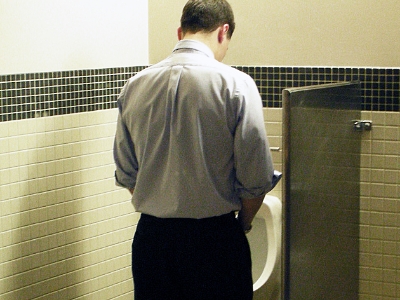Benign Prostatic Hyperplasia: Symptoms, Causes, and Treatment

Benign prostatic hyperplasia is a condition that causes enlargement of the prostate gland but it is not cancerous. It is also called benign prostatic hypertrophy or benign prostatic obstruction. As men age, their prostates go through two main growth periods. The first occurs early in puberty when the prostate doubles in size. The second phase of growth begins around age 25 and lasts until the end of a man’s life.
It often occurs with the second growth phase. As the prostate enlarges, the gland presses against and pinches the urethra. The bladder wall becomes thicker. Eventually, the bladder may weaken and lose the ability to empty completely, leaving some urine in the bladder.

Signs and Symptoms?
- Frequent or urgent need to urinate
- Increased frequency of urination at night
- Dribbling at the end of urination
- A weak urine stream that stops and starts
- Difficulty starting urination
- Inability to completely empty the bladder
Less common signs and symptoms include:
- Inability or urinate
- Urinary tract infection
- Blood in the urine
Some men with only slightly enlarged prostates can have significant symptoms, while other men with very enlarged prostates can have only minor urinary symptoms. Other possible causes of urinary symptoms:
- Inflammation of the prostate
- Kidney or bladder stones
- Scarring in the bladder neck as a result of previous surgery
- Cancer of the prostate or bladder
- Narrowing of the urethra
- Problems with the nerve
What causes Benign Prostatic Hyperplasia?
It is not entirely clear what causes the prostate to enlarge. However, it might be due to changes in the balance of sex hormones as men grow older. The prostate gland is located beneath your bladder. The tube that transports urine from your bladder out of your penis passes through the prostate. Most men have continued prostate growth throughout life. As it grows, it often becomes enlarged enough to cause urinary symptoms or significantly block urine flow in some men.

Here are some risk factors of BPH:
- Diabetes and heart disease. Studies show that diabetes, as well as heart disease and the use of beta blockers, might increase the risk of BPH.
- Aging. Prostate gland enlargement rarely causes signs and symptoms in men younger than age 40. About one-third of men experience moderate to severe symptoms by age 60, and about half do so by age 80.
- Lifestyle. Obesity increases the risk of BPH, while exercise can lower your risk.
- Family history. Having a blood relative, such as a father or a brother, with prostate problems means you are more likely to have problems.
Treatment and Management of Benign Prostatic Hyperplasia
The best treatment choice for you depends on several factors, including the size of your prostate, age, and overall health. If your symptoms are tolerable, you might decide to postpone treatment and simply monitor your symptoms. For some men, symptoms can ease without treatment. Doctors may also recommend a combination approach of medications and therapy. Typical medications for BPH are alpha-blockers, 5-alpha reductase inhibitors, combination drug therapy, and tadalafil.
Recommended Medication
Dutasteride is used to treat BPH found in men. It belongs to a class of drugs known as a 5-alpha-reductase inhibitor. This drug is used to treat the enlargement of the prostate gland. It inhibits and lowers the amount of the hormone dihydrotestosterone, which is responsible for prostate growth.
How is Benign Prostatic Hyperplasia Diagnosed?
- Urinary flow test. It measures the strength and amount of your urine flow. Test results help determine over time if your condition is getting better or worse.
- Digital rectal exam. The doctor inserts a finger into the rectum to check your prostate for enlargement.
- Urine test and blood test. Analyzing a sample of your urine can help rule out an infection or other conditions that can cause similar symptoms. The results of the blood test also indicate kidney problems.
- Prostate-specific antigen blood test. PSA is a substance produced in your prostate. PSA levels increase when you have an enlarged prostate.



